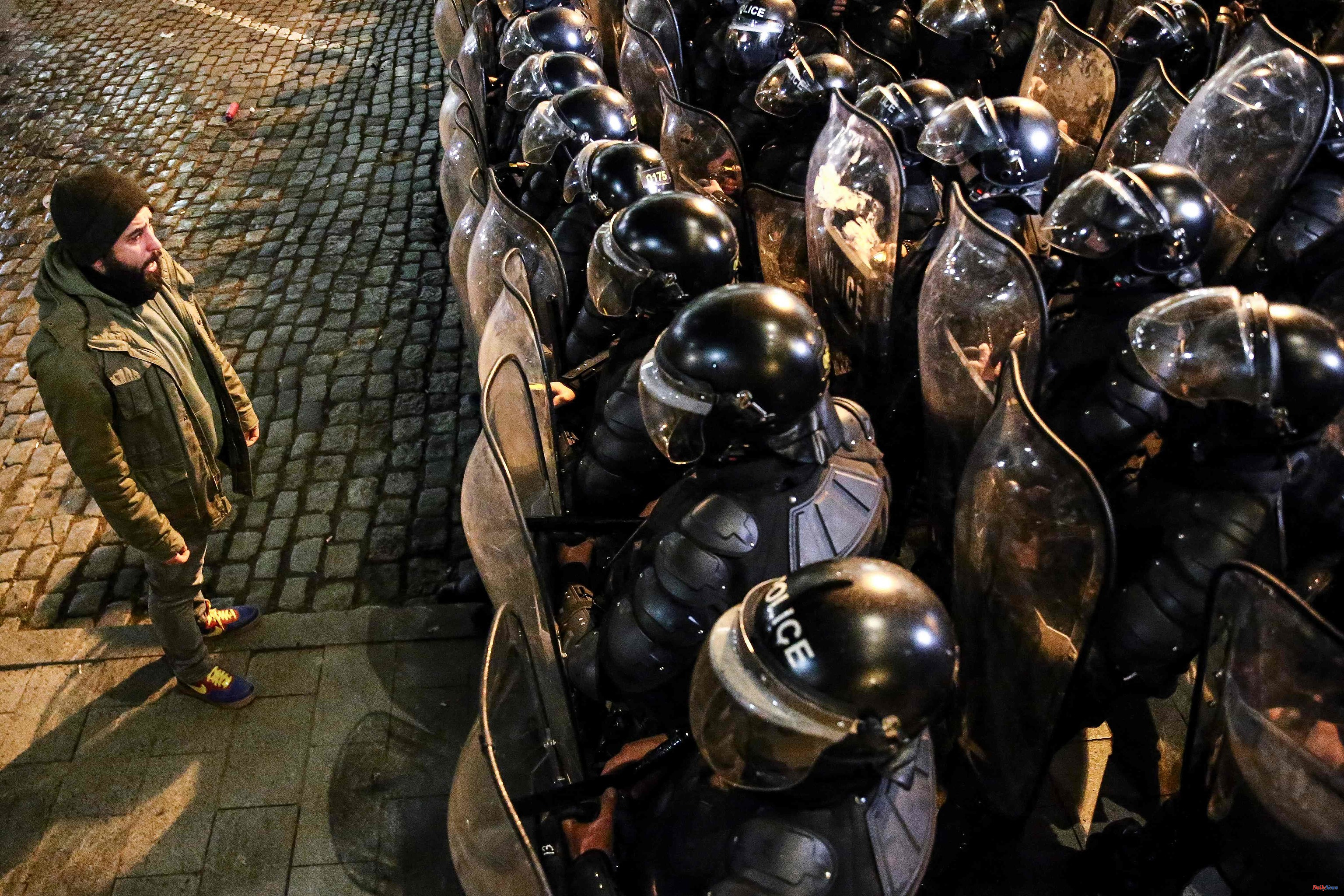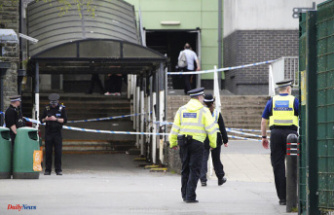At least 66 protesters were detained last night during violent protests that broke out outside the Georgian Parliament after the first reading approval of a controversial law on foreign agents, the country's Interior Ministry reported Wednesday. "66 people were arrested for contempt of the police and hooliganism," says the official note.
According to the Department of the Interior, fifty law enforcement officers suffered injuries of varying severity in clashes with protesters.
The authorities denounce that the participants in the protest, which lasted until dawn, threw stones at the police, tried to cause physical damage and burned cars, among other violent acts.
For this reason, according to Interior, the use of a "proportional" response was chosen.
Despite criticism within the country, in the United States and in the European Union, 76 Georgian parliamentarians on Tuesday supported the bill on foreign agents, while thirteen voted against it.
Subsequently, several hundred protesters equipped with stones, bottles and sticks tried to gain access to the building located in the central Rustaveli Avenue in Tbilisi.
According to the opponents, some of whom carried the flags of Georgia and the European Union yesterday, the law approved in first reading is "undemocratic".
This text recalls a similar law passed in Russia in 2012 and that the Kremlin uses to repress the media and opposition organizations or simple critical voices, considered as "foreign agents". Georgia, a small ex-Soviet republic in the Caucasus, has ambition to join the EU and NATO, but several recent government moves have cast a shadow over those aspirations and raised questions about his ties to the Kremlin.
Protesters also chanted against Russian President Vladimir Putin, accusing lawmakers from the ruling Georgian Dream party of being "Putin's slaves."
From the United States, the Georgian president, Salomé Zurabishvili, publicly expressed her support for the protests.
"I address you, who are on Rustaveli Avenue. Today I am in New York and before me is the Statue of Liberty. She is a symbol for what Georgia has always fought for. I am with you, since today you represent a free Georgia," he said.
In statements to television, he stressed that the law "was drafted under the dictates of Moscow", so "the project must be withdrawn."
The president of the Georgian Dream, Irakli Kobijadze, affirmed after the protests that the controversial project has already been sent to the Venice Commission and its discussion will continue only after there is a verdict.
The day before, the president of Parliament, Shalva Papuashvili, assured that the response from the Venice Commission could arrive "within about three months."
However, the Georgian opponents intend to resume their protest actions in front of Parliament this Wednesday.
According to the criteria of The Trust Project












